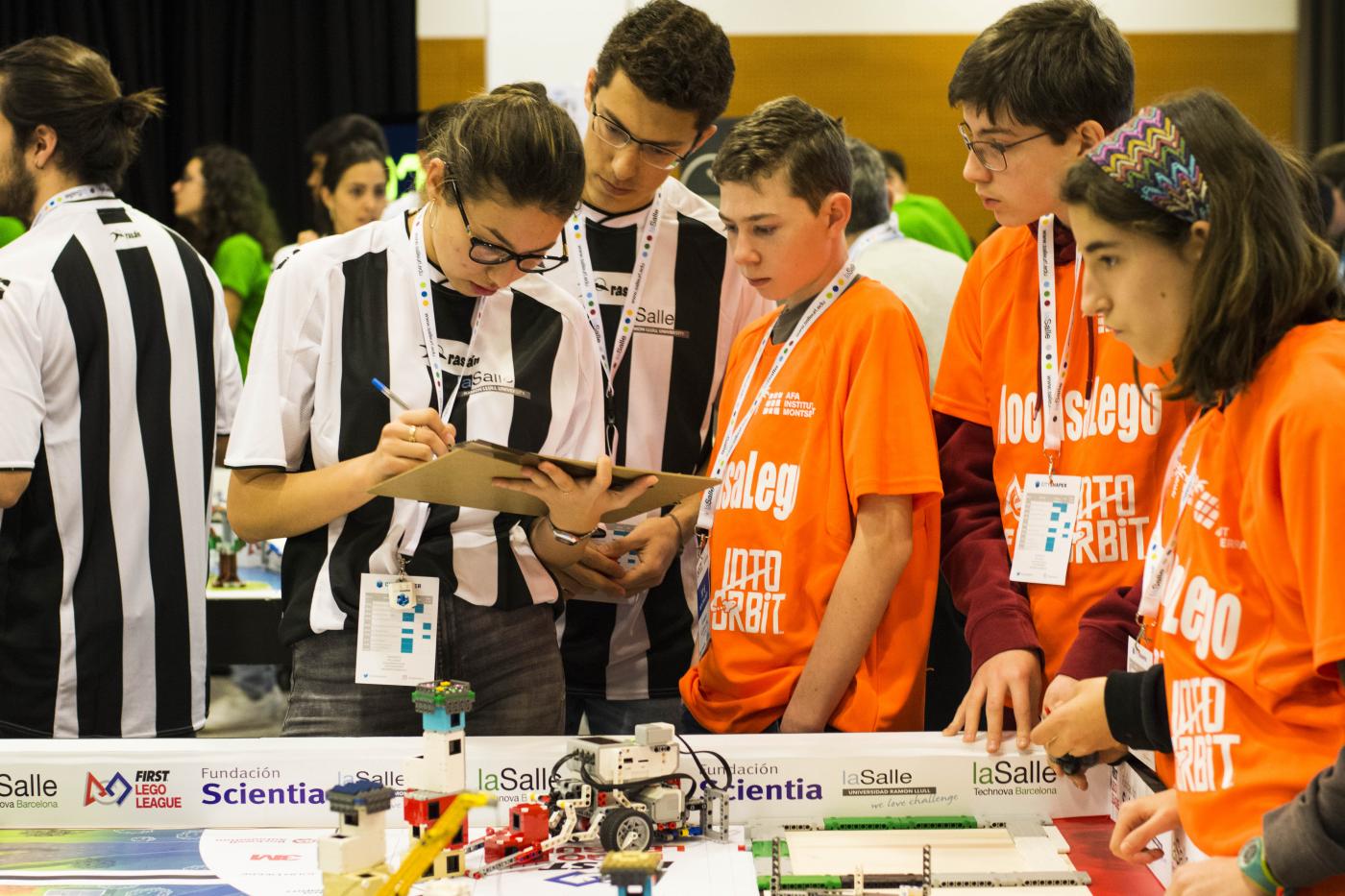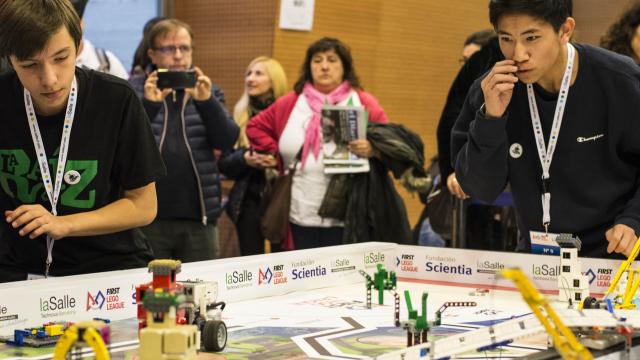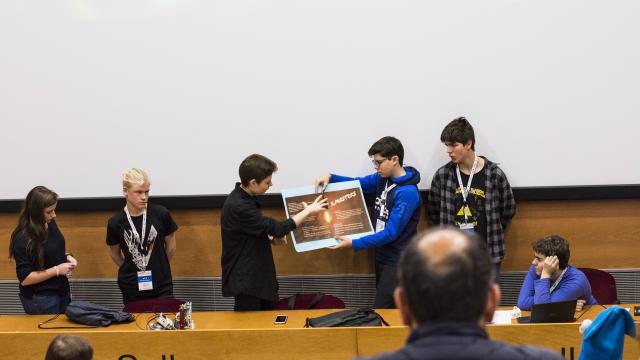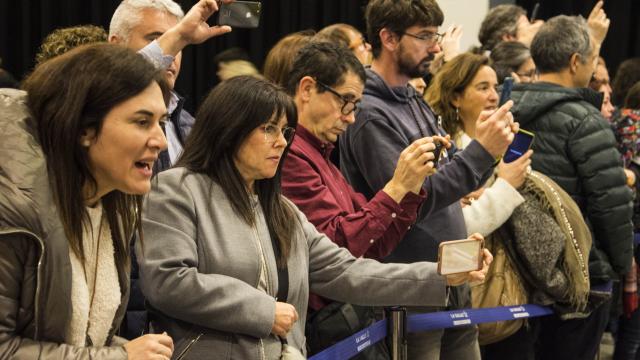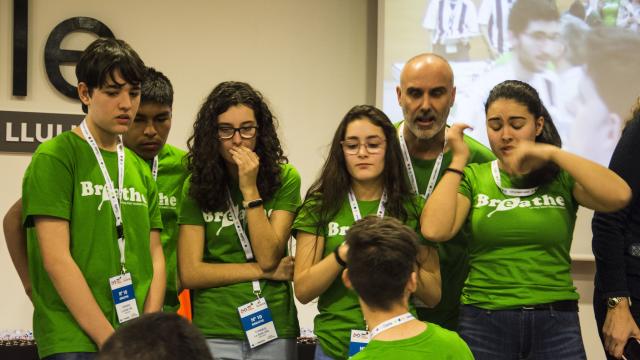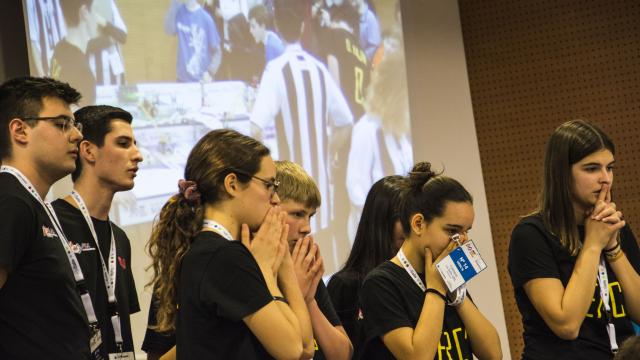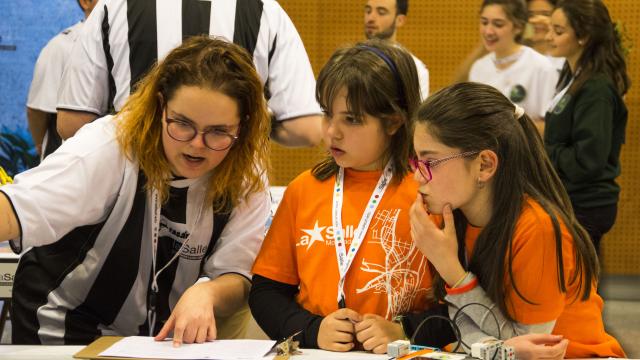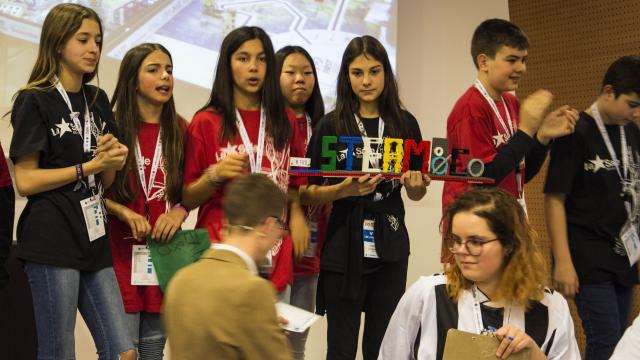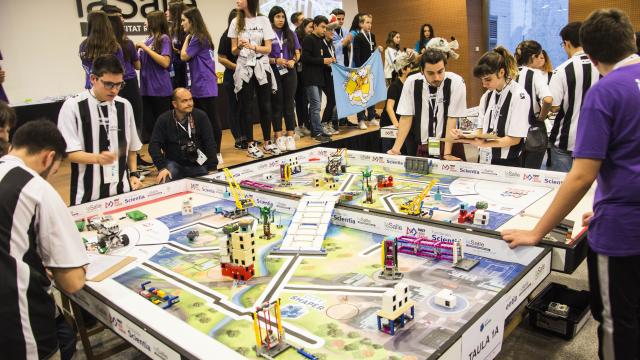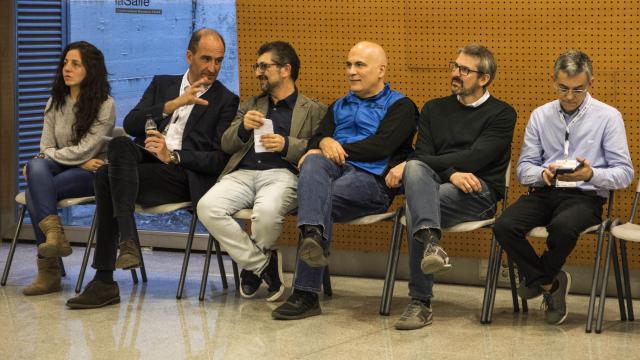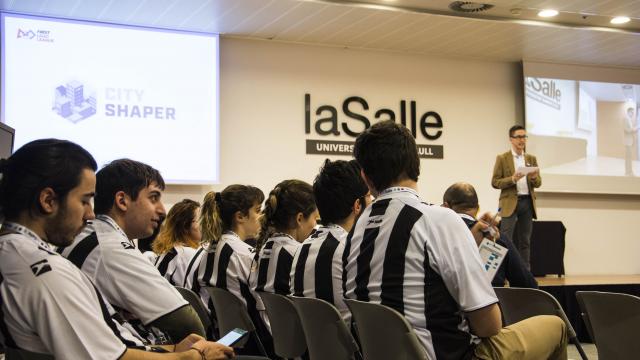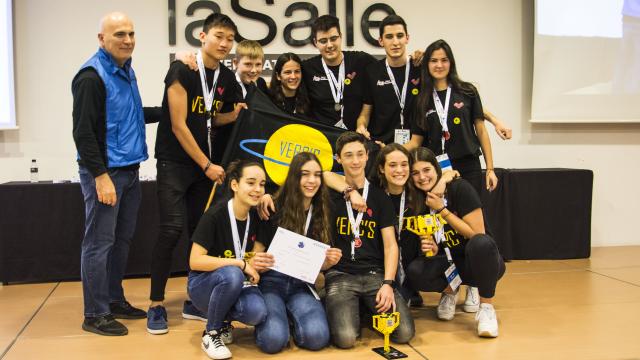The most famous robot programme in the world made a stop at the La Salle-URL Campus on Saturday to hold the CITY SHAPER challenge, this season’s FIRST LEGO League event. More than 200 secondary school students from 21 schools in Barcelona took part in the event, presenting innovative projects aimed at improving urban environments. Participants presented their projects aimed at designing more sustainable cities from a comprehensive range of perspectives, including socially, environmentally, economically and technologically. This year marks the 14th season in which La Salle-URL has hosted one of the FIRST LEGO League tournaments. What’s more, this year the ambassador in Spain for the initiative is Josep Miquel Piqué, La Salle-URL’s Director of Internationalisation and Innovation.
This year's challenge set by the FIRST LEGO League encourages the young people taking part to observe the growth and evolution of cities and societies, and to rethink established models. “By 2050, 70% of the population, over 6 billion people, is expected to live in cities. It is here, in cities, where we find the great social challenges —pollution, water, energy, mobility, waste, housing— and it is in cities where we have to find the solutions”, explains Josep Miquel Piqué. All of the teams worked on this theme and at the event, they presented their innovation project and a robot design, and explained how they would link to this the main values of the FIRST LEGO League: the consolidation of scientific and tech skills, teamwork and real-world problem solving.
Successful projects and awards
There was no shortage of excitement at the FIRST LEGO League tournament thanks to the robot game, where teams demonstrated their ingenuity and skill in building robots with LEGO MINDSTORMS technology. This was accompanied by an interesting reflection on the cities of the future, with presentations proposing improvements to help build more sustainable urban environments. A total of fourteen prizes were awarded to reward the work carried out by the teams. The team VERC'S from the Vedruna Sant Sadurní school took first prize in the tournament. This team was joined by FEDAC Virona Wolvineers and Aotrom in qualifying for the national finals, which will be held in Tenerife.
Complete list of winners:
- Awards for the WINNERS
Fundación Scientia 1st Place Prize: VERC'S
Fundación Scientia 2nd Place Prize: FEDAC Virona Wolvineers
Fundación Scientia 3rd Place Prize: Aotrom
- FIRST LEGO League Awards for Values
1st Place Prize for FIRST LEGO League Values: Kepler’s Shapers
2nd Place Prize for FIRST LEGO League Values: Falcons
- Awards for Most Innovative Projects
Dragados 1st Place Prize for Most Innovative Project: BREATHE
Dragados 2nd Place Prize for Most Innovative Project: FEDAC Junior Wolvineers
- Awards for Best Robot Design
1st Place Prize for Best Robot Design: Club de Robótica Cortocircuito
2nd Place Prize for Best Robot Design: Corbs Hackers
- Other Awards
Entrepreneurship Award: FLIP DIAMONDS
ROBOTIX Award for Promising Entries: The Wallies
Trainer Award: ECO-BOT
Global Innovation Award: BREATHE
30 teams from 21 schools in Barcelona
La Salle-URL brought together 21 schools in the province of Barcelona for this meeting of the FIRST LEGO League: Agora International School Barcelona, Canigó, Centre Kepler, Centro Cultural La Bóbilca, Col·legi Mary Ward Barcelona, Col·legi Sant Ramon Nonat, Colegio SIL, Edukative SL, Edukem-nos, Escola Concepcionistes de Barcelona, Escolàpies Sant Martí, Espai Jove Casa Sagnier, FEDAC, Fundació Escola Mowgli, Fundació Llor, Institut Montserrat Barcelona, Jesüites de Casp – Edukative, La Miranda – The Global Quality School, La Salle Montcada, Santa Teresa – Ganduxer y Vedruna – Sant Sadurní. In total, more than 220 young people joined to form 30 teams, with nearly 1,000 people attending the event.
In parallel to the presentations, which lasted approximately thirty minutes, four tables were set up in the La Salle-URL Conference Hall where the robot game was played. The referees of the games were La Salle-URL students, who received special training prior to the event to be able to carry out the role. After a morning of presentations and games, the awards ceremony and the closing ceremony took place at midday. The projects were evaluated by La Salle-URL teachers, led by Elena Jurado, and among those who presented the awards were César Millán Marfil, councillor of the Sarrià-Sant Gervasi District, and Román Serra Ferrer, director of procurement at Dragados, one of the main sponsors of the programme. The Barcelona district of Sarrià-Sant Gervasi is highly committed to the event, having paid the registration fees of 14 of the teams. The main prize was awarded by Josep Miquel Piqué, who called on the winners to continue their success in the finals in Tenerife.
